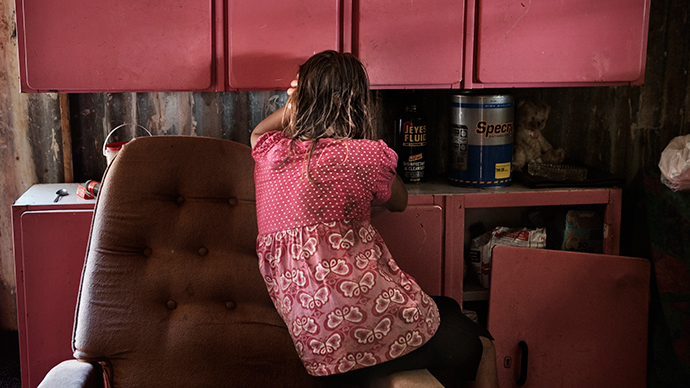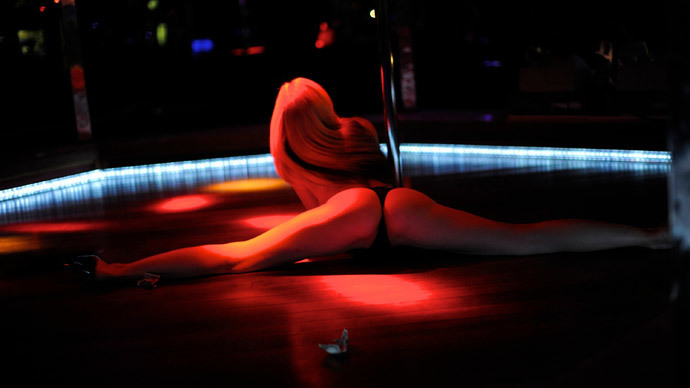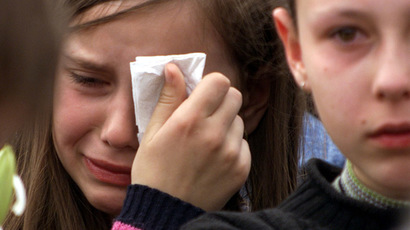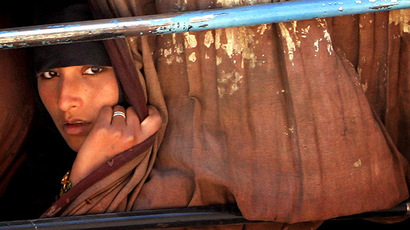Up to 13,000 in UK: Modern slavery estimate by Home Office quadruples previous figures

Britain has released a “dark figure” on modern slavery: 10,000-13,000 victims are thought to be scratching a living in the UK, around four times more than another recent estimate.
This is the first time a comprehensive survey on the scale of the problem has been carried out.
The new estimate comes from a review of police sources, the UK Border Force, charities and other bodies. It far outweighs last year’s figure by the National Crime Agency’s Human Trafficking Centre, which put the number at 2,744, including 600 children.
However, even the smaller estimate represents a 22 percent jump from 2013.
READ MORE: Branded like cattle: Report shows hordes of victims, incl. kids, trafficked into UK
The most vulnerable individuals were women forced, or lured, into prostitution, trafficked or otherwise held against their will. Others include “imprisoned” domestic staff and people working in factories, farms and immigrants working in the fishing industry.
In the latter category, the situation is so dire there have been cases of foreign fishermen leaping from UK-owned fishing boats to escape abusive treatment, malnutrition and exhaustion. A recent Scottish police investigation made British headlines, after a 13-page statement from a Filipino taxi-driver-turned-fisherman detailed unpaid wages and untreated injuries requiring amputation. The nearly billion-pound industry is increasingly relying on immigrant labor.

The biggest problem with ports is that they are subject to scant oversight.
The Home Office has rolled out a comprehensive anti-slavery strategy, which culminated with a bill currently going through Parliament, proposed by Home Secretary Theresa May. The document aims to fill the gaps in powers given to the police and government agencies in England and Wales, with Scotland and Ireland set to follow soon.
Those places least likely to receive specialized attention – major ports and airports – will now get dedicated trafficking teams working to identify abusive conditions for workers. Efforts will also be redoubled to crack down on profits.
A new position of Modern Slavery Commissioner was also introduced.
The author of the bill says the strategy, while sound, is “only part of the answer,” insisting that “the time has come for a concerted, coordinated action. Working with a wide-range of partners, we must step up the fight against modern slavery in this country, and internationally, to put an end to the misery suffered by innocent people around the world."
In early November, adding to Theresa May’s warnings, her former adviser and the chair of the Human Trafficking Foundation, Anthony Steen, called such efforts “a lost opportunity,” saying they still leave a great number of victims exposed.
READ MORE: Human Trafficking adviser warns Modern Slavery Bill leaves victims helpless
He said the legislation had “yawning gaps” that failed to address the needs of victims, such as welfare initiatives or compensation payments.
“The bill is wholly and exclusively about law enforcement – but it shouldn’t be enforcement-based, it should be victim-based. We have majored on the wrong thing,” Steen told The Guardian.
“It is positive in the sense that it is an entirely new initiative, but is it going to do anything?”














